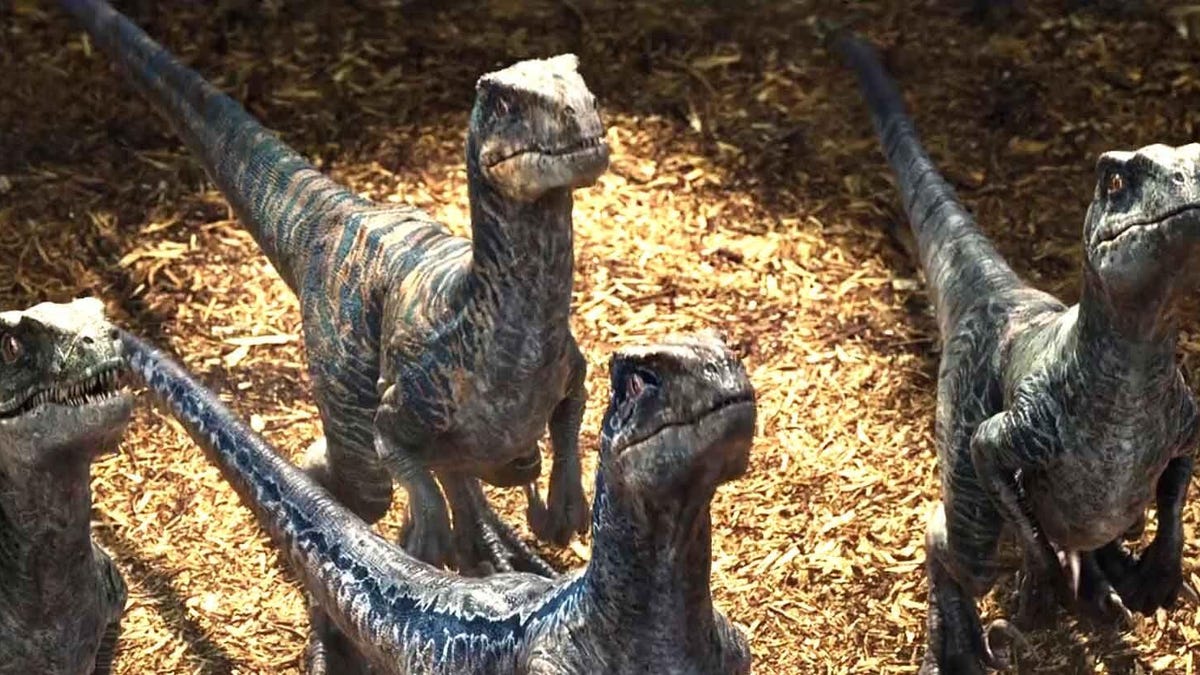Jurassic Park got raptors all wrong, new study shows
Life didn't, uh, find a way -- at least, not the way we thought.

Jurassic World had us thinking raptors roam in organized packs.
Jurassic Park certainly has a lot to answer for when it comes to our perception of dinosaurs, de-extinction and DNA -- and that's before we even consider its impact on Jeff Goldblum's career. Although the original stacks up in a whole lot of ways, there's one thing the movies got... kind of wrong.
The raptors.
A new analysis, to published in the journal Palaeogeography, Palaeoclimatology, Palaeoecology, details how velociraptors probably didn't hunt in packs, like the movies depict. Instead, they likely hunted solo, only attacking in tandem when multiple raptors went for the same prey -- though not in a coordinated or strategic fashion.
"Raptorial dinosaurs often are shown as hunting in packs similar to wolves," said Joseph Frederickson, director of the Weis Earth Science Museum and leader of the study. "The evidence for this behavior, however, is not altogether convincing ... The problem with this idea is that living dinosaurs (birds) and their relatives (crocodilians) do not usually hunt in groups and rarely ever hunt prey larger than themselves."
So the study, from University of Wisconsin Oshkosh, analyzed raptor teeth as a method of extrapolating hunting and feeding habits.
"If we can look at the diet of young raptors versus old raptors, we can come up with a hypothesis for whether they hunted in groups," Frederickson said.
The scientists compared the chemistry of teeth from the raptor Deinonychus (which lived in the Cretaceous Period about 115 million to 108 million years ago) with cretaceous crocodilians from the same geologic formation. In doing so, they discovered both species showed disparities between the smallest and largest teeth -- indicating a transitory diet.
"This is what we would expect for an animal where the parents do not provide food for their young," Frederickson said. "We also see the same pattern in the raptors, where the smallest teeth and the large teeth do not have the same average carbon isotope values, indicating they were eating different foods. This means the young were not being fed by the adults, which is why we believe Jurassic Park was wrong about raptor behavior."
The method could conceivably indicate whether other extinct animals also hunted in packs.
It's not the first time scientists have shrugged off comparisons to Jurassic Park. Ben Novak, the lead scientist with conservation nonprofit Revive & Restore, also laughs at any thought that Jurassic Park might be a realistic depiction of what de-extinction might be like.
"The plot of Jurassic Park was made possible to uphold the plot of Jurassic Park," he told CNET. "There's absolutely no logical reason that Jurassic Park should have played out the way it did."
At the very least, when it comes to raptor behavior, he may be right.

